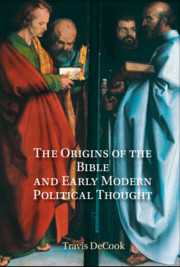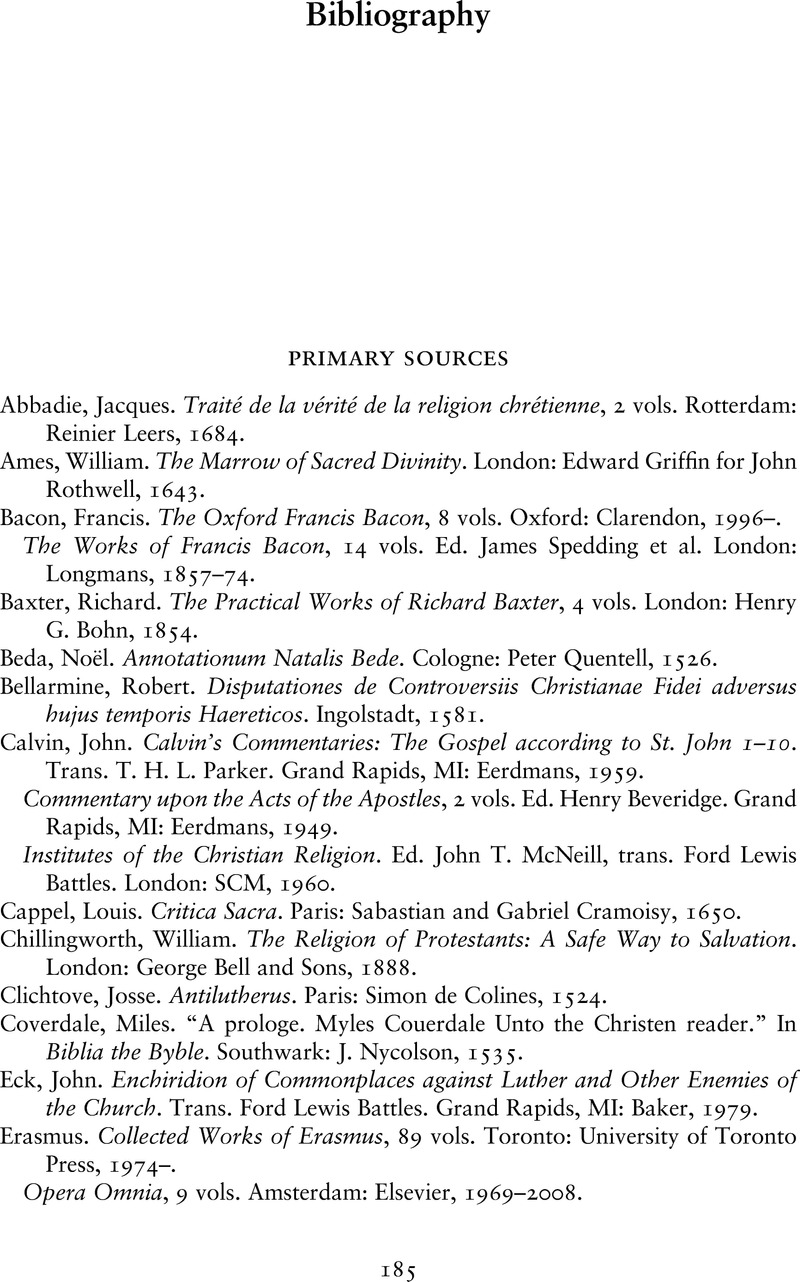 The Origins of the Bible and Early Modern Political Thought
The Origins of the Bible and Early Modern Political Thought Book contents
- The Origins of the Bible and Early Modern Political Thought
- The Origins of the Bible and Early Modern Political Thought
- Copyright page
- Dedication
- Contents
- Acknowledgments
- Introduction
- 1 The Primordial Bible
- 2 The Extrinsic Bible
- 3 Scripture Atomized
- 4 The Trial of Scripture
- 5 The Religion of the State
- Conclusion
- Bibliography
- Index
- References
Bibliography
Published online by Cambridge University Press: 02 March 2021
- The Origins of the Bible and Early Modern Political Thought
- The Origins of the Bible and Early Modern Political Thought
- Copyright page
- Dedication
- Contents
- Acknowledgments
- Introduction
- 1 The Primordial Bible
- 2 The Extrinsic Bible
- 3 Scripture Atomized
- 4 The Trial of Scripture
- 5 The Religion of the State
- Conclusion
- Bibliography
- Index
- References
Summary

- Type
- Chapter
- Information
- The Origins of the Bible and Early Modern Political ThoughtRevelation and the Boundaries of Scripture, pp. 185 - 202Publisher: Cambridge University PressPrint publication year: 2021
